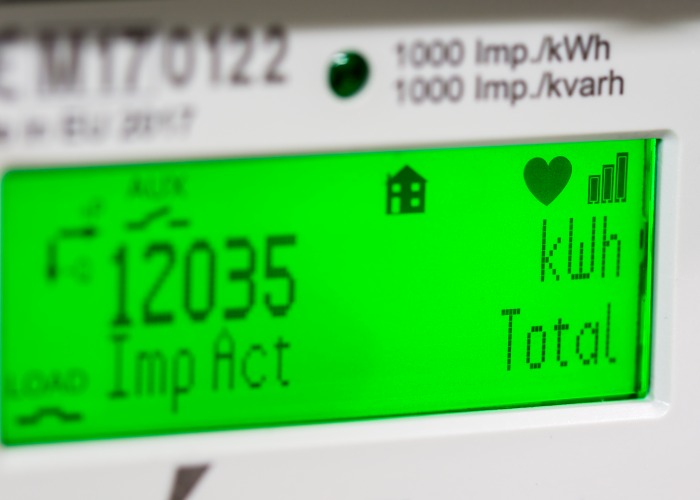Failing to fix tariffs, leaving appliances on standby, poor boiler maintenance and other mistakes pushing up your energy costs

With constant uncertainty over our gas and electricity bills, we reveal seven mistakes that could add up to £100s to your annual energy costs.
It’s fair to say that times are tough for most UK households, with energy bills being one of the major sources of financial misery.
Earlier this month, the Energy Price Cap, which sets out the maximum amount suppliers are allowed to charge customers per unit of energy, increased by 2%.
Put in monetary terms, it meant the typical household's annual energy bill increased by £35 to £1,755.
That might not sound like a big increase, but it's worth considering just how historically high our energy bills were already: back in 2020, the typical home was paying less than £1,200 a year.
That means even minor increases will put an inordinate amount of pressure on our stretched household budgets.
With this in mind, it's important that we avoid inadvertently wasting energy or simply paying more than is necessary.
In this article, we reveal seven things that could be adding £100s to your annual energy costs – and how to offset some of the pain.
MISTAKE ONE: not fixing your energy tariff (£185 average loss)
During the ‘golden age’ of cheaper energy, regularly moving suppliers was often the key to reducing gas and electricity costs.
However, the so-called ‘switching’ culture hit a wall several years ago when energy prices soared at the start of the decade.
As a result, many of us opted to remain on our supplier’s Standard Variable Tariff – the rate you pay if you fail to move provider.
In contrast, a fixed-rate deal offers protection against rising costs for a set period, usually 12 months.
According to research from price comparison site USwitch, fixing your tariff could save you up to £185 on the current Price Cap.
How to fight back
Switching energy companies is usually straightforward, and your new supplier should handle the changeover.
We've partnered with Uswitch to help you find a cheap new deal, but any price comparison site will help with this.
MISTAKE 2: poor boiler maintenance (up to £580 annual loss)
A neglected boiler typically uses more gas or electricity to produce the same amount of heat as a well-maintained device.
Under current rules, boilers have a grade from A to G when it comes to performance.
While A-rated boilers must achieve more than 90% in terms of efficiency, G-rated boilers can score as low as 60%.
Research by boiler replacement service Boiler Guide (our energy partner) found that replacing an old model could wipe up to £580 a year off energy bills if your usage is high.
This would obviously be at the extreme end of the savings you could make, but there's no question that replacing a rickety old boiler with a new one will be a savvy move for most people.
With energy bills up 50% since 2020, it'll pay for itself sooner than you might think.
|
PROMOTION
|
||
|
MISTAKE 3: not insulating your home (up to £730 annual loss)
According to solar company GreenMatch, a typical UK household could lose up to a third of its total heat through poor insulation.
Full-home insulation typically involves creating a thermal barrier for roofs, walls and flooring.
The researchers found that homes with wall, underfloor and loft insulation could save between £630 and £730 a year on energy bills.
That said, you’ll also need to factor in the cost of insulating your home.
Online platform Checkatrade found that the average cost for loft insulation in the UK ranges from £654 for a terraced property to approximately £1,206 for a detached house.
MISTAKE 4: leaving appliances on standby (up to £50 annual loss)
You could save roughly £45 per year in Great Britain and £55 in Northern Ireland by turning appliances off standby mode, the Energy Saving Trust has found.
And this doesn’t just apply to TVs.
Games consoles, set-top boxes, computers, microwaves and coffee machines also sap power.
Alternatively, you could invest in a standby saver – a gadget that cuts the power supply to all connected devices via a single switch.
MISTAKE 5: relying on tumble dryers (up to £197 annual loss)
There’s no denying tumble dryers can be a lifesaver during the colder months.
However, these devices are also one of your home's biggest energy drains.
According to research from consumer champion Which?, annual running costs for a vented tumble dryer can hit £197.71.
These expel hot, damp air directly outside through a vent or hose.
Although these models are often cheaper to purchase, they typically cost far more in the long term.
In contrast, heat pump machines have running costs of just £56.54, despite a higher initial purchase price.
These reuse the warm air from the drying process, rather than venting it.
How to fight back
Consider drying your washing on an airer in a well-ventilated room or using a dehumidifier.
When you do need the dryer, spin clothes thoroughly in the washing machine first and keep the lint filter clean.
Heat pumps review: cost, different types and will it save you money?
MISTAKE 6: ignoring draughts (£60 annual loss)
Gaps around windows, doors, chimneys and floorboards allow precious heat to escape, forcing your boiler to work even harder.
According to the Energy Saving Trust, draught-proofing windows and doors could save you approximately £55 a year in Great Britain and £65 in Northern Ireland.
If you have an unused fireplace, consider fitting draught excluders around doors and windows, sealing gaps in floorboards and installing a chimney balloon – an inflatable draught excluder designed to seal off unused chimney flues.
MISTAKE 7: inefficient lighting (up to £45 annual loss)
Traditional bulbs can be energy guzzlers compared to modern LED alternatives.
In fact, LEDs use up to 80% less electricity than their old-fashioned counterparts and last far longer, according to the Energy Saving Trust.
The research found that households in Great Britain could reduce costs by approximately £40 per year by replacing halogen lightbulbs with LEDs.
Likewise, those in Northern Ireland could save £50.
However, the initial outlay is approximately £180, which you should factor into your budget.
Where to get help
If you’re struggling with energy costs, there are organisations that can offer support.
These include:
The Energy Saving Trust
Ofgem
National Energy Action
Citizens Advice
Comments
Be the first to comment
Do you want to comment on this article? You need to be signed in for this feature
